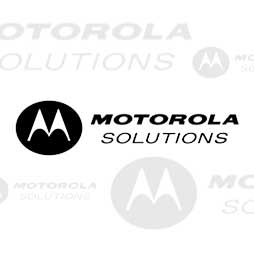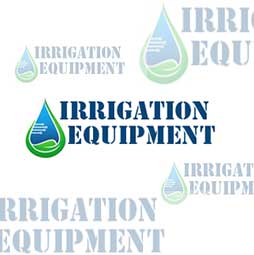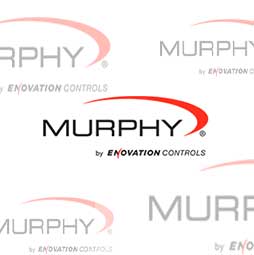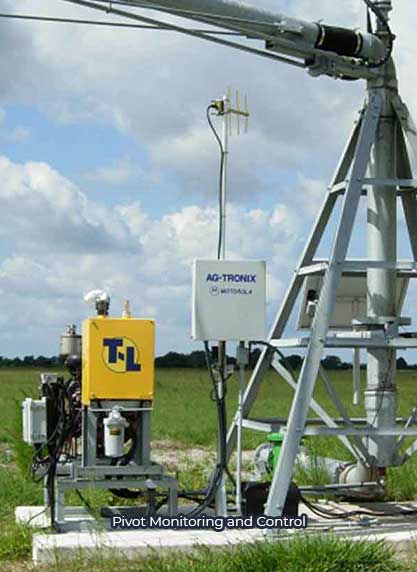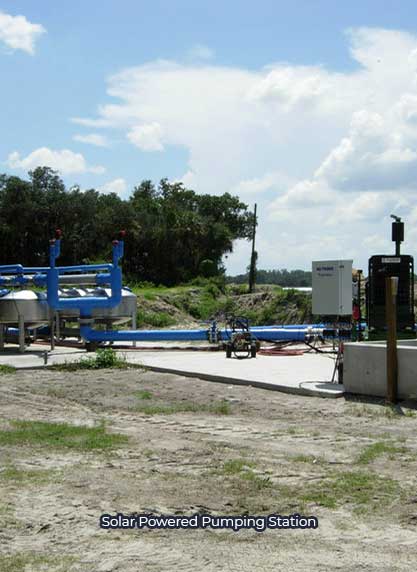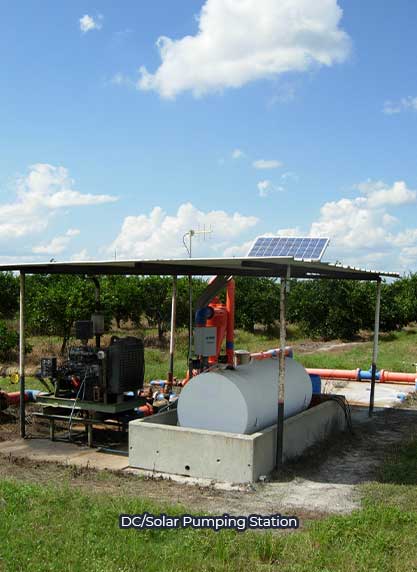
Ag-Tronix history
Ag-Tronix, was established in 1994 by Sonya Lee, with the company's focus on helping our clients manage their water with Motorola Irrigation Controllers. With electronics and irrigation as the company's background, we can provide our customers with control systems that are designed to fit their watering needs. Ag-Tronix provides irrigation designs, sales, and service for all type of Agriculture or Turf applications. Our product line is diverse and offers clients the convenience of going with a turn-key contractor.
The Ag-Tronix promise: Ag-Tronix exists to benefit our customers in their effort to manage our most valuable resource, water. We want to define our position in the industry through unquestioned service and reliability. We will always support and cherish the customers we serve.
Contact UsFeatures
Love What We Do
We show you our different types of projects.
Services
Fully Automated Irrigation Pumping Stations
These stations are equipped with advanced technology such as sensors, controllers, and software that work together to manage the irrigation process. This technology enables the system to monitor soil moisture levels, weather conditions, and other factors that affect irrigation needs. Based on this information, the system can automatically adjust the water flow, pressure and timing of irrigation to ensure optimal water usage and crop growth. Fully automated irrigation pumping stations also have remote monitoring and control capabilities, which allow farmers or operators to monitor and adjust the system from a remote location. These systems can save time, water and energy resources, and help to improve crop yields.
Fully Automated Irrigation Pumping Stations
These stations are equipped with advanced technology such as sensors, controllers, and software that work together to manage the irrigation process. This technology enables the system to monitor soil moisture levels, weather conditions, and other factors that affect irrigation needs. Based on this information, the system can automatically adjust the water flow, pressure and timing of irrigation to ensure optimal water usage and crop growth. Fully automated irrigation pumping stations also have remote monitoring and control capabilities, which allow farmers or operators to monitor and adjust the system from a remote location. These systems can save time, water and energy resources, and help to improve crop yields.
Irrigation Monitoring and Control Design
This design process involves the use of various sensors, controllers, and software to collect data on soil moisture, weather conditions, and other factors that affect irrigation needs. This data is then analyzed and used to optimize the irrigation process, including adjusting water flow, pressure, and timing to ensure optimal water usage and crop growth. The design process also includes the integration of remote monitoring and control capabilities, which allow farmers or operators to monitor and adjust the irrigation system from a remote location.
Irrigation Monitoring and Control Design
This design process involves the use of various sensors, controllers, and software to collect data on soil moisture, weather conditions, and other factors that affect irrigation needs. This data is then analyzed and used to optimize the irrigation process, including adjusting water flow, pressure, and timing to ensure optimal water usage and crop growth. The design process also includes the integration of remote monitoring and control capabilities, which allow farmers or operators to monitor and adjust the irrigation system from a remote location.
Irrigation Design and Construction
The process begins with a thorough assessment of the land to be irrigated, including soil type, topography, crop type, and water availability. This information is then used to design an irrigation system that is tailored to the specific needs of the land and crops. The process also considers the environmental impact and energy efficiency, to ensure that the irrigation system is sustainable. Overall, irrigation design and construction is a critical aspect of modern agriculture, as it helps ensure that crops receive the necessary water to grow and thrive.
Irrigation Design and Construction
The process begins with a thorough assessment of the land to be irrigated, including soil type, topography, crop type, and water availability. This information is then used to design an irrigation system that is tailored to the specific needs of the land and crops. The process also considers the environmental impact and energy efficiency, to ensure that the irrigation system is sustainable. Overall, irrigation design and construction is a critical aspect of modern agriculture, as it helps ensure that crops receive the necessary water to grow and thrive.
Qualified Technicians to cover all aspects of a Pumping Station
Qualified technicians are individuals who have the knowledge, skills and training necessary to maintain, troubleshoot and repair pumping stations. These technicians are experts in all aspects of pumping station operations, including the mechanical, electrical and control systems that make up the station. They are able to diagnose and repair problems with pumps, valves, motors, and other components, as well as perform routine maintenance tasks to keep the station running smoothly.
Qualified Technicians to cover all aspects of a Pumping Station
Qualified technicians are individuals who have the knowledge, skills and training necessary to maintain, troubleshoot and repair pumping stations. These technicians are experts in all aspects of pumping station operations, including the mechanical, electrical and control systems that make up the station. They are able to diagnose and repair problems with pumps, valves, motors, and other components, as well as perform routine maintenance tasks to keep the station running smoothly.
Service Plans
Service plans are agreements between a service provider and a customer that outline the terms and conditions of the service to be provided. These plans typically specify the type of service, the level of service, the frequency of service, and the cost of the service. Service plans can be customized to meet the specific needs of the customer and can be tailored to include different levels of service.
Service Plans
Service plans are agreements between a service provider and a customer that outline the terms and conditions of the service to be provided. These plans typically specify the type of service, the level of service, the frequency of service, and the cost of the service. Service plans can be customized to meet the specific needs of the customer and can be tailored to include different levels of service.

